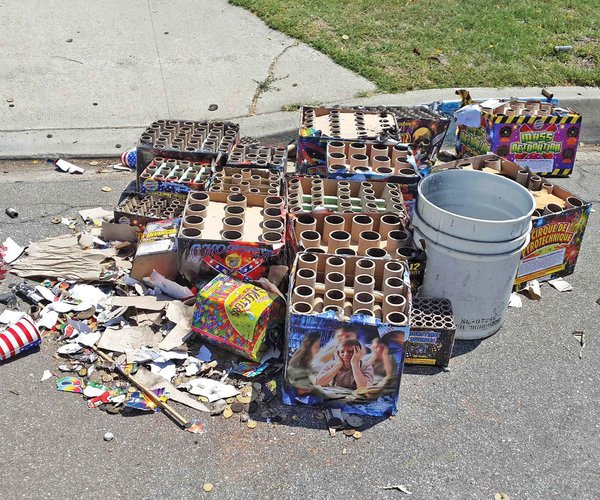With California in a serious water drought, and the state ban on the watering of grass at commercial, industrial, and institutional properties, some businesses in Ceres are faced with the prospect of letting their grass die or having to replace it.
The turf watering ban took effect on June 16 and does not apply to residential properties but will apply to the non-functional turf maintained by homeowners’ associations. The ban also does not apply to watering turf used for recreational or other community purposes, such as parks and schools.
The new rule will impact the grass strips in front of McDonald’s, Starbucks, professional offices and more. The city itself needs to determine how it will change the limited turf usage along public rights-of-way and city properties such as the Ceres Police headquarters and the Ceres American Legion Hall.
Commercial and industrial properties are allowed to continue watering trees and shrubs and plants.
“Our commercial irrigation accounts use a significant amount of water,” said Karen Morgan, superintendent of the city of Ceres Public Works Department. “So that’s what we’re trying to do right now is (figure out) what is the potential savings of these accounts.”
The city is drafting a letter to educate the 1,000 commercial, industrial and industrial account holders about the new ban.
Businesses have two accounts, one for indoor or domestic water lines and the other for outdoor irrigation.
Water suppliers and local government will be tasked with enforcing the ban, and those found to be in violation are subject to a daily fine up to $500.
“That’s obvious not the first route that we want to go,” Morgan noted. “We’re hoping to set up a few programs that encourage people to do this.”
Some of the businesses with turf may now wish or need to remove it and replace it with drought tolerant plants and rock. The city offers turf replacement rebates, paying businesses and residential owners up to $1,000 to remove and replace turf for 1,000 square feet of landscaping. There’s been little interest in the rebates from businesses but that may change with the enactment of the statewide ban.
“We’re wanting to help our commercial accounts maintain their really pretty landscaping but just in a different way,” said Morgan. “Trees are still to be watered.”
Ceres residents work hard to save water, said Morgan, but Ceres’ overall water conservation efforts are not as good as they once were.
“In the past we’ve done really well and have met our goals but similar to the rest of the state of California, which is only meeting 3.7 percent of its conservation goals throughout the state, we’re kind of in line with that. We don’t have the (water) savings that we’ve had in the past.”
The city calculated that in April the residential use of water per person per day was 82.04 gallons. It’s estimated that on the annual average, each person uses 91.02 gallons per person per day.
She acknowledged that the city has focused mostly its education and outreach programs on residential water use but now needs to focus on industrial and commercial usage.
“We’ve never been asked to start working with our commercial accounts so this will be the first time,” said Morgan.
All water users in Ceres are allowed currently to water outdoors only two days a week under Stage 2 of the Drought Contingency Plan.
If you have any questions, visit the City of Ceres Public Works website, or call (209) 538-5732.





